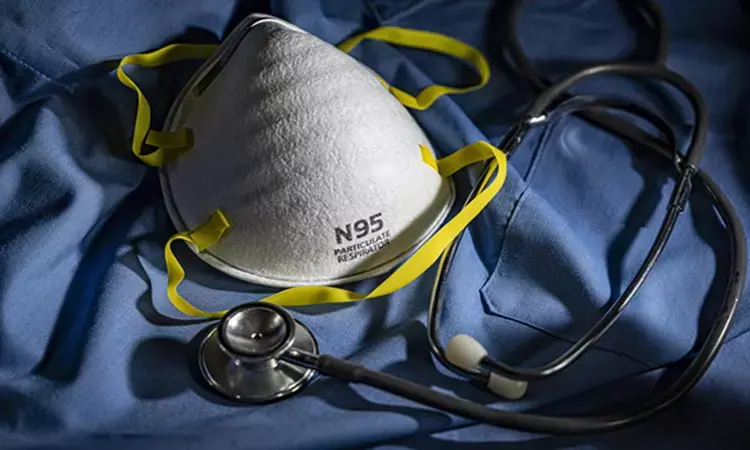- Home
- Medical news & Guidelines
- Anesthesiology
- Cardiology and CTVS
- Critical Care
- Dentistry
- Dermatology
- Diabetes and Endocrinology
- ENT
- Gastroenterology
- Medicine
- Nephrology
- Neurology
- Obstretics-Gynaecology
- Oncology
- Ophthalmology
- Orthopaedics
- Pediatrics-Neonatology
- Psychiatry
- Pulmonology
- Radiology
- Surgery
- Urology
- Laboratory Medicine
- Diet
- Nursing
- Paramedical
- Physiotherapy
- Health news
- Fact Check
- Bone Health Fact Check
- Brain Health Fact Check
- Cancer Related Fact Check
- Child Care Fact Check
- Dental and oral health fact check
- Diabetes and metabolic health fact check
- Diet and Nutrition Fact Check
- Eye and ENT Care Fact Check
- Fitness fact check
- Gut health fact check
- Heart health fact check
- Kidney health fact check
- Medical education fact check
- Men's health fact check
- Respiratory fact check
- Skin and hair care fact check
- Vaccine and Immunization fact check
- Women's health fact check
- AYUSH
- State News
- Andaman and Nicobar Islands
- Andhra Pradesh
- Arunachal Pradesh
- Assam
- Bihar
- Chandigarh
- Chattisgarh
- Dadra and Nagar Haveli
- Daman and Diu
- Delhi
- Goa
- Gujarat
- Haryana
- Himachal Pradesh
- Jammu & Kashmir
- Jharkhand
- Karnataka
- Kerala
- Ladakh
- Lakshadweep
- Madhya Pradesh
- Maharashtra
- Manipur
- Meghalaya
- Mizoram
- Nagaland
- Odisha
- Puducherry
- Punjab
- Rajasthan
- Sikkim
- Tamil Nadu
- Telangana
- Tripura
- Uttar Pradesh
- Uttrakhand
- West Bengal
- Medical Education
- Industry
Ultraviolet C light ideal for optimal decontamination of individual N95 respirators

According to recent research, it has been observed that ultraviolet C light (UVC) represents an optimal decontamination method for individual N95 respirators when reuse is necessary, as published in the American Journal of Otolaryngology.
Zi YangJiang and associates from the Department of Otorhinolaryngology–Head and Neck Surgery, McGovern Medical School, Houston, Texas, USA carried out the present study with the sole purpose to evaluate the effectiveness and ease of N95 respirator decontamination methods in a clinic setting and to identify the extent of microbial colonization on respirators associated with reuse.
The authors conducted a prospective study in which a total of 15 N95 respirators were randomized to a decontamination process (time, dry heat, or ultraviolet C light [UVC]) in outpatient clinics. Each respirator was re-used up to 5 separate clinic sessions.
Swabs on each respirator for SARS-CoV-2, bacteria, and fungi were obtained before clinic, after clinic and post-treatment. Mask integrity was checked after each treatment (n = 68). Statistical analyses were performed to determine factors for positive samples.
The results showed that -
a. All three decontamination processes reduced bacteria counts similarly.
b. On multivariate mixed model analysis, there were an additional 8.1 colonies of bacteria (95% CI 5.7 to 10.5; p < 0.01) on the inside compared to the outside surface of the respirators.
c. Treatment resulted in a decrease of bacterial load by 8.6 colonies (95% CI -11.6 to −5.5; p < 0.01).
d. Although no decontamination treatment affected the respirator filtration efficiency, heat treatments were associated with the breakdown of thermoplastic elastomer straps.
e. Contamination with fungal and SARS-CoV-2 viral particles were minimal to non-existent.
Therefore, it was concluded that "Time, heat and UVC all reduced bacterial load on reused N95 respirators. Fungal contamination was minimal. Heat could permanently damage some elastic straps making the respirators nonfunctional. Given its effectiveness against microbes, lack of damage to re-treated respirators and logistical ease, UVC represents an optimal decontamination method for individual N95 respirators when reuse is necessary."
Dr. Nandita Mohan is a practicing pediatric dentist with more than 5 years of clinical work experience. Along with this, she is equally interested in keeping herself up to date about the latest developments in the field of medicine and dentistry which is the driving force for her to be in association with Medical Dialogues. She also has her name attached with many publications; both national and international. She has pursued her BDS from Rajiv Gandhi University of Health Sciences, Bangalore and later went to enter her dream specialty (MDS) in the Department of Pedodontics and Preventive Dentistry from Pt. B.D. Sharma University of Health Sciences. Through all the years of experience, her core interest in learning something new has never stopped. She can be contacted at editorial@medicaldialogues.in. Contact no. 011-43720751
Dr Kamal Kant Kohli-MBBS, DTCD- a chest specialist with more than 30 years of practice and a flair for writing clinical articles, Dr Kamal Kant Kohli joined Medical Dialogues as a Chief Editor of Medical News. Besides writing articles, as an editor, he proofreads and verifies all the medical content published on Medical Dialogues including those coming from journals, studies,medical conferences,guidelines etc. Email: drkohli@medicaldialogues.in. Contact no. 011-43720751


